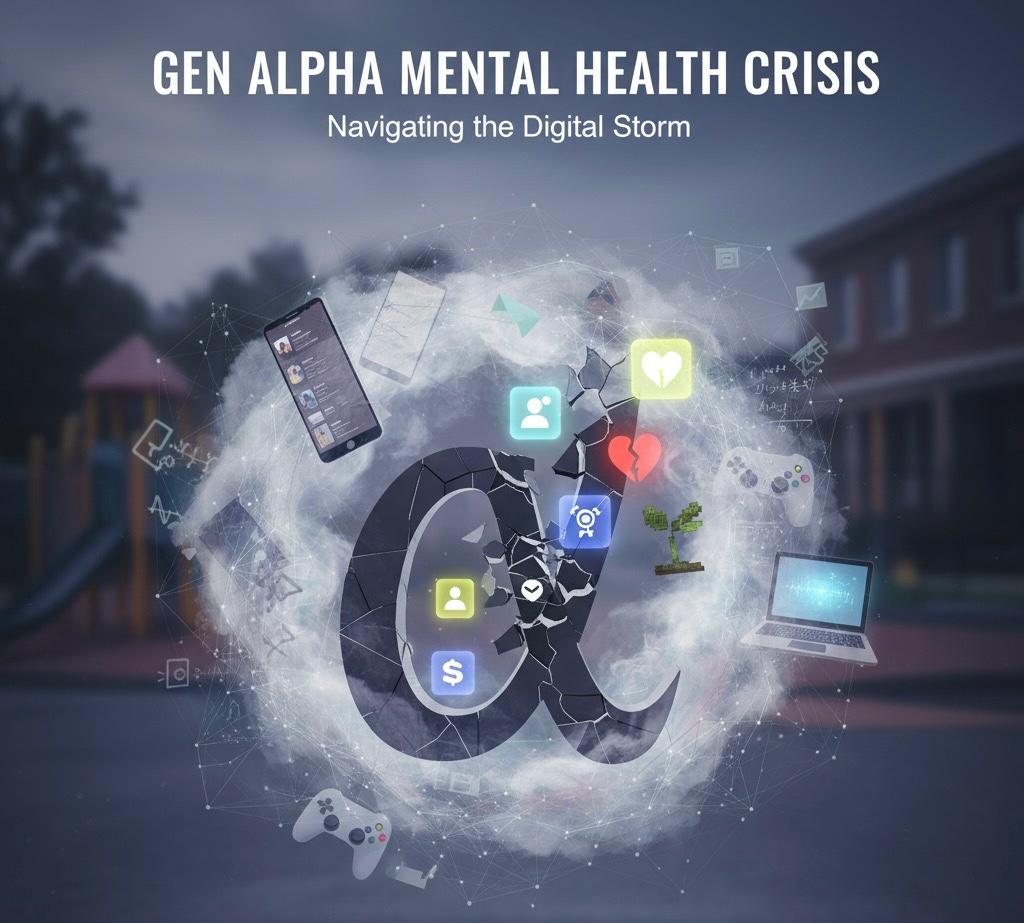Early intervention is a crucial approach in healthcare and education that involves identifying and providing early support to individuals, particularly children, who are at risk of or are experiencing developmental, behavioural, or mental health issues. The goal of early intervention is to prevent or mitigate long-term negative outcomes by addressing issues as soon as they arise. This article explores the importance of early intervention, the benefits it offers, and strategies for effective implementation, supported by scientific research.
Keywords: early intervention, benefits of early intervention, developmental support, mental health, behavioural issues, Australian health
Understanding Early Intervention
Early intervention refers to the services and supports provided to children and their families during the early years of development. These services can include medical, educational, and therapeutic interventions aimed at promoting optimal development and preventing the escalation of problems (Guralnick, 1997).
Importance of Early Intervention
Early intervention is critical for several reasons:
1. Enhancing Developmental Outcomes
Early intervention can significantly improve developmental outcomes for children with developmental delays or disabilities. By addressing issues early, children are more likely to reach their full potential.
- Cognitive Development: Early intervention can enhance cognitive development, leading to better academic performance and improved problem-solving skills (Shonkoff & Phillips, 2000).
- Social and Emotional Development: Early support helps children develop healthy social and emotional skills, which are crucial for forming relationships and succeeding in school (Fox, Dunlap, & Cushing, 2002).
2. Preventing Long-Term Problems
Intervening early can prevent the escalation of issues, reducing the likelihood of long-term problems and the need for more intensive and costly interventions later in life.
- Behavioural Issues: Addressing behavioural problems early can prevent the development of more severe behavioural disorders (Ramey & Ramey, 1998).
- Mental Health: Early intervention in mental health can reduce the risk of developing chronic mental health conditions (Kessler et al., 2005).
3. Supporting Families
Early intervention provides families with the support and resources they need to effectively care for their children, reducing stress and improving family wellbeing.
- Parental Support: Providing parents with education and resources helps them better understand and meet their child’s needs (Bailey et al., 2006).
- Family Dynamics: Early intervention can improve family dynamics by reducing stress and increasing the family’s ability to cope with challenges (Dunst, Trivette, & Hamby, 2007).
Benefits of Early Intervention
Early intervention offers numerous benefits for children, families, and society as a whole.
1. Improved Academic Achievement
Children who receive early intervention are more likely to perform well academically. Early support helps build foundational skills necessary for academic success.
- Reading and Math Skills: Early literacy and numeracy programs improve reading and math skills, leading to better academic performance (Barnett, 1995).
- School Readiness: Early intervention programs prepare children for school by promoting social, emotional, and cognitive skills (Reynolds et al., 2001).
2. Enhanced Social Skills
Early intervention helps children develop essential social skills, such as communication, cooperation, and empathy, which are important for building relationships.
- Peer Interactions: Early social skills training improves peer interactions and reduces social isolation (Odom et al., 2004).
- Conflict Resolution: Children learn effective conflict resolution skills, leading to better relationships with peers and adults (Denham et al., 2003).
3. Long-Term Economic Benefits
Investing in early intervention can lead to long-term economic benefits by reducing the need for special education, welfare, and criminal justice services.
- Cost Savings: Early intervention reduces the need for more expensive interventions later in life, resulting in significant cost savings for society (Heckman, 2006).
- Economic Productivity: Individuals who receive early intervention are more likely to become productive members of society, contributing to the economy (Karoly, Kilburn, & Cannon, 2005).
Strategies for Effective Early Intervention
Effective early intervention requires a comprehensive approach that includes early identification, evidence-based practices, and family involvement.
1. Early Identification
Early identification of developmental, behavioural, and mental health issues is crucial for timely intervention.
- Screening Programs: Implementing regular screening programs in healthcare and educational settings helps identify children who may benefit from early intervention (Glascoe & Shapiro, 2002).
- Parental Involvement: Encouraging parents to monitor their child’s development and seek help if they have concerns is vital for early identification (Woolfenden, Williams, & Peat, 2001).
2. Evidence-Based Practices
Using evidence-based practices ensures that early intervention is effective and based on the best available research.
- Interdisciplinary Approach: Combining expertise from various fields, such as healthcare, education, and psychology, provides a holistic approach to early intervention (Guralnick, 2005).
- Tailored Interventions: Developing individualized intervention plans that meet the unique needs of each child and family increases the effectiveness of early intervention (Barnett, 1995).
3. Family Involvement
Involving families in the early intervention process is essential for successful outcomes.
- Parent Training: Providing training and resources to parents empowers them to support their child’s development effectively (Bailey et al., 2006).
- Collaborative Approach: Working collaboratively with families to set goals and develop intervention plans ensures that the services provided are relevant and effective (Dunst et al., 2007).
Conclusion
Early intervention is a critical approach that can significantly improve developmental, behavioural, and mental health outcomes for children. By enhancing developmental outcomes, preventing long-term problems, and supporting families, early intervention offers numerous benefits for individuals and society. Implementing effective strategies, such as early identification, evidence-based practices, and family involvement, ensures that early intervention is successful and sustainable. Prioritising early intervention can lead to a healthier, more productive society and improved quality of life for children and their families.
References
- Bailey, D. B., Hebbeler, K., Spiker, D., Scarborough, A., Mallik, S., & Nelson, L. (2006). Thirty-six-month outcomes for families of children who have disabilities and participated in early intervention. Pediatrics, 117(4), 1436-1446.
- Barnett, W. S. (1995). Long-term effects of early childhood programs on cognitive and school outcomes. The Future of Children, 5(3), 25-50.
- Denham, S. A., Blair, K. A., DeMulder, E., Levitas, J., Sawyer, K., Auerbach-Major, S., & Queenan, P. (2003). Preschool emotional competence: Pathway to social competence? Child Development, 74(1), 238-256.
- Dunst, C. J., Trivette, C. M., & Hamby, D. W. (2007). Meta-analysis of family-centered helpgiving practices research. Mental Retardation and Developmental Disabilities Research Reviews, 13(4), 370-378.
- Fox, L., Dunlap, G., & Cushing, L. S. (2002). Early intervention, positive behaviour support, and transition to school. Journal of Emotional and Behavioral Disorders, 10(3), 149-157.
- Glascoe, F. P., & Shapiro, H. L. (2002). Introduction to developmental and behavioral screening. Journal of Developmental & Behavioral Pediatrics, 23(1), 5-11.
- Guralnick, M. J. (1997). The effectiveness of early intervention. Paul H. Brookes Publishing Co.
- Guralnick, M. J. (2005). An overview of the developmental systems model for early intervention. In M. J. Guralnick (Ed.), The developmental systems approach to early intervention (pp. 3-28). Paul H. Brookes Publishing Co.
- Heckman, J. J. (2006). Skill formation and the economics of investing in disadvantaged children. Science, 312(5782), 1900-1902.
- Karoly, L. A., Kilburn, M. R., & Cannon, J. S. (2005). Early childhood interventions: Proven results, future promise. RAND Corporation.
- Kessler, R. C., Berglund, P., Demler, O., Jin, R., Merikangas, K. R., & Walters, E. E. (2005). Lifetime prevalence and age-of-onset distributions of DSM-IV disorders in the National Comorbidity Survey Replication. Archives of General Psychiatry, 62(6), 593-602.
- Odom, S. L., McConnell, S. R., & Brown, W. H. (2004). Social competence of young children: Conceptualization, assessment, and influences. In S. L. Odom, S. R. McConnell, & M. A. McEvoy (Eds.), Social competence of young children: Risk, disability, and intervention (pp. 3-31). Paul H. Brookes Publishing Co.
- Ramey, C. T., & Ramey, S. L. (1998). Early intervention and early experience. American Psychologist, 53(2), 109-120.
- Reynolds, A. J., Temple, J. A., Robertson, D. L., & Mann, E. A. (2001). Long-term effects of an early childhood intervention on educational achievement and juvenile arrest: A 15-year follow-up of low-income children in public schools. JAMA, 285(18), 2339-2346.
- Shonkoff, J. P., & Phillips, D. A. (Eds.). (2000). From neurons to neighborhoods: The science of early childhood development. National Academy Press.
- Woolfenden, S., Williams, K., & Peat, J. (2001). Family and parenting interventions in children and adolescents with conduct disorder and delinquency aged 10-17. Cochrane Database of Systematic Reviews, (2).
How to get in touch
If you or your NDIS participant need immediate mental healthcare assistance, feel free to get in contact with us on 1800 NEAR ME – admin@therapynearme.com.au.







